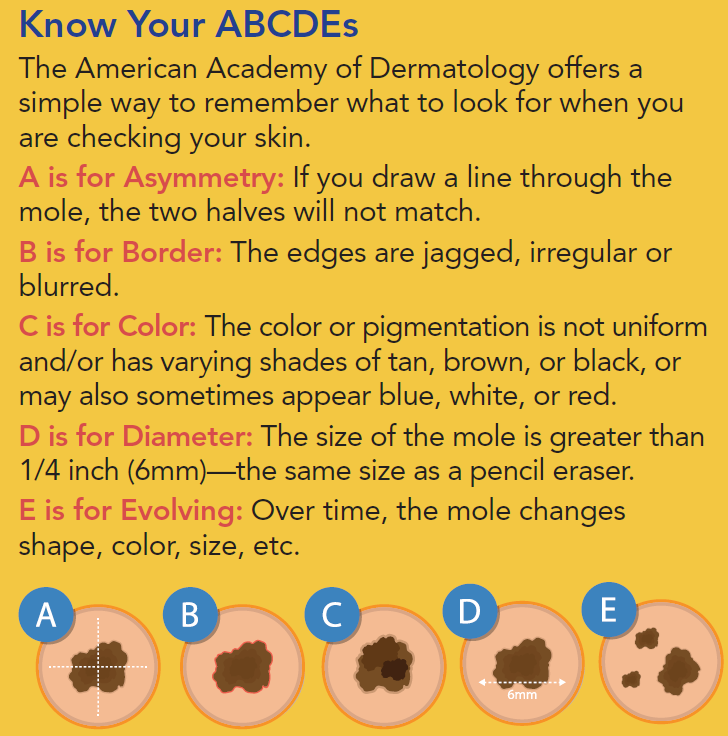The skinny on skin
July 27, 2022
What picture is your skin painting about your overall health?
Taking care of the largest organ in your body is about more than just avoiding age spots and wrinkles. While the appearance of your skin can affect how you feel about yourself, it can also be an indication of an underlying condition. Your skin:
- Protects germs from entering your body
- Helps regulate body temperature
- Plays a role in keeping our immune system healthy
- Permits the sensations of touch, heat, and cold
- Makes up about 15% of your body weight
- Consists of about 300 million cells
Skin Cancer
Skin cancer is the most common type of cancer in the United States. Each year 5 million people receieve treatment. Some people are at higher risk for skin cancer than others. If you check off any of the risk factors below, we encourage you to talk to your provider.
- Have freckles and burn before tanning
- Have fair skin or blond, red, or light brown hair
- Were previously treated for skin cancer or have a family history of skin cancer, especially melanoma
- Live or vacation at high altitudes (UV radiation increases 4% to 5% for every 1,000 feet above sea level)
- Live or vacation in tropical or subtropical climates
- Work indoors all week and then get intense sun exposure on weekends
- Spend a lot of time outdoors
- Have certain autoimmune diseases, such as systemic lupus erythematosus (SLE, or “lupus”)
- Take medicines that lower your immunity
 Ways to help prevent skin cancer
Ways to help prevent skin cancer
- Don’t use tanning beds or sun lamps.
- Wear sunscreen every day.
- Wear clothes that protect you from ultraviolet (UV) rays. Wear sunglasses with UV protection. Avoid spending time outdoors between 10 a.m. and 2 p.m.
Schedule a check-up
If you notice a change in your skin, don’t hesitate to make an appointment with your doctor. While not all skin changes are caused by skin cancer, it’s important to get them checked out since early detection offers a better chance at successfully treating it.
